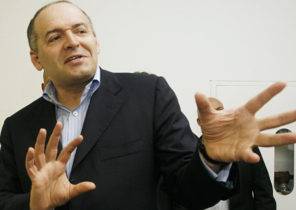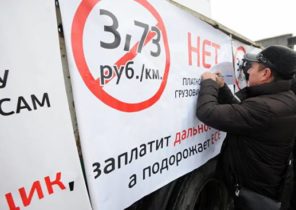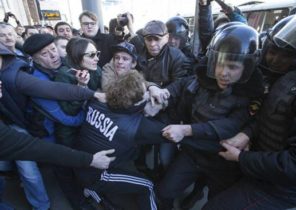Instead of funding a war in Ukraine, creating a threat of broader conflict, the leaders of the member States need to take a step back and recognize that Russia and the West in Ukraine has legitimate interests, and that the only way out of this situation is a diplomatic solution.
Warlike analytical center called the Institute for the study of war (Institute for the Study of War) recently issued a warning that Vladimir Putin used the situation with coronavirus to “achieve its strategic objectives in Ukraine.” This Institute has focused its attention on a country that has no major importance to the national interests of the United States. By doing so in the middle of a terrible pandemic that struck the United States, he demonstrated total short-sightedness of the American national security structures. Such short-sightedness shows a deep lack of understanding of how to create a world order at the end of the cold war.
Consider just a few examples of how ineptly the American leaders searched for a solution to some problems at the end of the cold war. When the former Yugoslavia broke out the first post-cold war conflict, American political leaders insisted that it is an artificial state must be preserved, despite the powerful national and religious aspirations, present in the three main components of this pseudosteady. In China, America began a policy of “constructive engagement”, naively believing that the leader of competing with the West civilization, which is different from the West’s interests, for whatever reason, want to follow the Western path. As noted by Samuel Huntington (Samuel Huntington), the Chinese believe that their “economic success is largely a consequence of Asian culture that transcends the decadent culture of Western society”. Allowing, perhaps, the worst blunder since the cold war, the United States suggested that if you save the Iraqis from the dictatorial regime, they will stand under the banner of democracy, forget about centuries-old ethnic and religious contradictions, and very quickly assimilate Western values, rights, and worldview.
In all of these blunders have in common. This dismissive attitude to the observation of Huntington that after the cold war, the world organizes itself along ethnic, religious and civilizational characteristics. The country began to abandon the artificial alliances during the cold war, rallying around a shared historical ties. We should have known that Turkey will strive for the Islamic world, moving away from the interests of NATO that the Orthodox Greece will be one of the most problematic members of the EU, and Muslim Chechnya is to strive for independence from Orthodox Russia. As Huntington wrote, “in the world after the cold war the most important distinctions among peoples are not ideological, political or economic in nature. It is a cultural difference”.
US policy towards Russia is suffering from a deep misunderstanding of the motives which lead to action groups. Francis Fukuyama (Francis Fukuyama) on behalf of the most part of the foreign policy establishment, have argued in 1989 that Russia after the cold war is drifting towards a political system where “the people themselves will be responsible for their actions; where higher political authorities will respond to the subordinate, and not Vice versa; where the rule of law will prevail over the arbitrariness of the police, where there will be true separation of powers and an independent judiciary”. Many Western thinkers and to imagine that Russia will choose the reactionary course and will return to its autocratic and Orthodox roots.
Since the forecasts and views of the Huntington turned out to be more prescient than Fukuyama and many other leaders of the American foreign policy establishment had to listen to his advice, when the crisis unfolded in Ukraine. But he never listened.
Huntington predicted the crisis in Ukraine. His theory that the nation will return to its historical and cultural roots, was a natural consequence. Those countries that are divided between civilizations, the so-called “divided” the country with the largest probability should give rise to a conflict between the great powers. Remember how in the former Yugoslavia, the United States, Germany, Russia and a prominent Islamic countries rushed to support their own proxies in this conflict, acting on the principle of civilization.
Civilisational standards of the Huntington, Ukraine is a deeply divided country, divided in historical, geographical and religious lines. Western Ukraine was always in the European corner, and the East of Ukraine with Crimea firmly follow the orbit of Orthodox Russia. The most famous book of Huntington’s “Clash of civilizations” (The Clash of Civilizations) was issued long before the Ukrainian crisis of 2013, but it has a lot of warnings about the dangers of the situation in the country, but also outlines a forecast that Ukraine could “split along its fault line into two separate entities, while the Eastern part merges with Russia. First and foremost the question of secession will arise in the Crimea.”
Huntington was the most astute observer of the changes in the world order after the cold war, and therefore we should listen carefully to his advice about how to solve problems such powder kegs, such as Ukraine. Many inattentive readers of the works of Huntington had misinterpreted his ideas and way too fixated on the word “clash” in the title of his book. They claimed that Huntington advocated the clash of the West with other civilizations in self-defense. Some thinkers have confused “collision” Huntington thesis of Bernard Lewis (Bernard Lewis) that militant Islam will provoke a global confrontation between Islam and the West.
In fact, Huntington strongly emphasized that it is impossible to provoke the Islamic world and urged to proceed cautiously and diplomatically in a divided country such as Ukraine. He was strongly opposed to Crusades for democracy promotion as a key component of American foreign policy. Huntington wrote about this: “Therefore, the fundamental responsibility of Western leaders is not to attempt to alter other civilizations in the image and likeness of the West, that their strength, and in preserving, protecting and renewing the unique qualities of Western civilization.”
Huntington argued that in the majority of civilizational blocks that appear after the cold war, are natural leaders. He called them the core States. Sinskey civilization will be headed by China, Orthodox Russia, and the Western United States. Because the Islamic world has no natural leader, the struggle for such leadership will be fought between Sunnis and Shiites, and between the major countries of the Middle East such as Turkey, Egypt, Saudi Arabia and Iran.
These core States are very important for the settlement of those problems that arise in the split countries such as Ukraine. Instead of funding a war in Ukraine, taking her other hands and creating the threat of a broader conflict, the leaders of the core States need to take a step back and recognize that Russia and the West in Ukraine has legitimate interests, and that the only way out of this situation is a diplomatic solution. Whether this decision of the dismemberment of Ukraine, Federal education, where the aspirations of both parts of the country will be treated with respect, or kind of a compromise, this problem can be solved only by sincere diplomatic efforts by Russia and the United States.
As shown by the work of the Institute for the study of war, American policy towards Ukraine is the direct opposite of what is recommended Huntington. This is a real crusade for the promotion of democracy, has led US-backed the coup in Kiev, the refusal to recognize any legitimate interests of Russia in the Crimea and in the East of Ukraine, despite their deep historical ties, as well as to support the proxy war in Donbass, the objectives of which are unclear.
While America is plagued by a pandemic and its consequences, the American people do not want to put up with standardized interventionist US foreign policy in those parts of our world that have nothing to do with our interests. To move forward, it is necessary to apply the model of Huntington, recognizing the legitimate interests of other civilizational regions, and to engage in genuine diplomacy, which has become a major tool of U.S. foreign policy.







